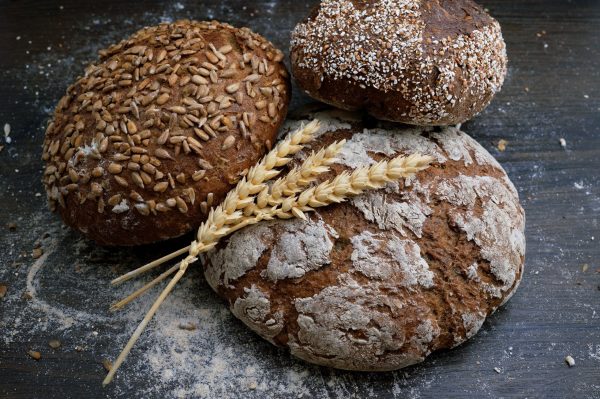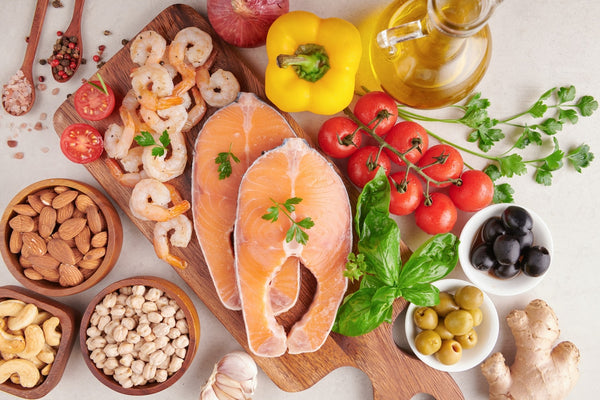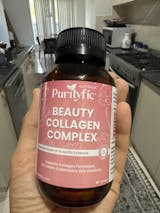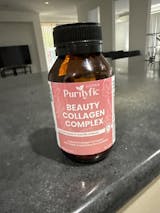
Here's a List of Vitamins for Muscle Recovery

When it comes to sports and gymnastics, injuries can sometimes be part of the game. Fortunately, certain foods and supplements can help reduce the amount of time it takes your body to recover from a sports injury.
Here's a List of Vitamins for Muscle Recovery
This composition lists 14 foods and supplements that you can consider adding to your diet to help you recover from injury more quickly.
Why do muscles ache after exercise?
Exercising can sometimes give you muscle soreness, especially if you are using your body in new ways, such as trying a new sport or increasing the intensity or duration of activities your body normally does.
Eccentric condensation (similar to the bottom of the bicep coil), where your muscles stretch under pressure, can also cause pain.
However, it is also important to know the difference between pain from strenuous exercise and pain from injury.
Delayed Onset Muscle Soreness (DOMS)
Pain after exercise, also known as Delayed Onset Muscle Soreness (DOMS), is believed to be caused by microdamage to muscle filaments and inflammation. This type of pain generally peaks 2-3 days after the training session.
DOMS is part of the process your muscles are conditioned for new exertion. While some believe muscles become sore due to lactic acid buildup, lactic acid is not involved in DOMS.
Muscle pain from injury, similar to strain or tendonitis, which is different from DOM.
DOMS takes a day or two to appear, and the pain from an injury is generally relentless.
Pain from injury is also generally localized to one area. And generally, pain from an injury can last from a week to months, while DOM generally heals in 5 – 7 days.
1. Protein-rich foods
Protein is an important structural block for many apkins in your body, including muscles. After a sports injury, the injured body part is often paralyzed. This generally leads to a decrease in strength and muscle mass.
Getting enough protein can help minimize this loss. Also, a protein-rich diet can help reduce inflammation from getting too severe and slow your recovery.
Therefore be sure to include protein-rich foods such as meat, fish, meat, eggs, tofu, latex, legumes, nuts, or seeds in your daily menu.
2. Fiber-rich foods
Recovery from injury often involves immobilization or limited use of the injured body part. And when you move less, you use less energy throughout the day.
To help manage your weight as you recover, you may want to eat less than you did during the exercise before the injury.
One way to reduce calorie intake without feeling hungry
is to consume foods rich in fiber. This, along with eating the protein-rich foods mentioned above, can help you eat less without feeling deprived.
That's because fiber-rich foods like fruits, vegetables, nuts, and whole grains help increase the arousal of wholeness after reflection.
As an advantage, fiber-rich foods tend to contain several other nutrients that are important for your recovery, including vitamin C, magnesium, and zinc.
3. Fruits and vegetables rich in vitamin C
Vitamin C helps the body make collagen, which maintains the integrity of bones, muscles, skin and tendons. Vitamin C is also important for repairing cracks.
Thus, getting enough vitamin C in your diet is a great way to help your body recover.
Also, vitamin C has an antioxidant and anti-inflammatory package, which can help speed recovery by preventing over-inflammatory situations.
Fortunately, vitamin C is one of the easiest vitamins that can be obtained through food intake.
Some of the foods that are highest in vitamin C are citrus fruits, unheroic red peppers, dark leafy flora, kiwi, broccoli, berries, tomatoes, mangoes, and papayas.
4. Omega-3 fatty acids
After an injury, the first phase of wound healing always involves some inflammation. This inflammatory response is beneficial and necessary for proper healing.
However, if this inflammation is too high for a long time, it can slow down your recovery. One way to prevent excess inflammation from delaying recovery is to eat enough omega-3 fats.
These fats, which are found in foods such as fish, algae, walnuts, flaxseeds, and chia seeds, are known to have anti-inflammatory properties.
You can also prevent excessive or prolonged inflammation by limiting your consumption of omega-6 fats, which are commonly found in corn, canola, cottonseed, and soybean oils.
Eating too much omega-6 fats can increase inflammation, especially if your intake of omega-3 fats is low.
In addition, several studies report that omega-3 supplements can help increase muscle protein formation, reduce muscle loss during immobilization, and improve recovery from concussion.
However, a high intake of omega-3 fats from supplements may reduce your body's ability to regain muscle mass once you return to training. Therefore, it may be better to increase omega-3 intake through food rather than supplements.
5. Zinc-rich foods
Zinc is a component of many enzymes and proteins, including those needed for wound healing, tissue repair, and growth.
In fact, research shows that not getting enough zinc from food can delay wound healing.
Therefore, eating zinc-rich foods such as meat, fish, shellfish, nuts, seeds, nuts, and seeds can help you recover more effectively from injury.
Some people may be tempted to only take zinc supplements to make sure they meet their recommendations.
But zinc competes with copper for absorption, so receiving high doses of zinc from supplements may increase the chance of copper deficiency.
Overall, if your zinc status is good, additional zinc from supplements may not speed wound healing. However, getting enough of your diet is important.
7. Creatine
Creatine is a substance that occurs naturally in meat and fish.
It helps the body generate energy during heavy lifting or high-intensity exercise. The mortal body can also produce about 1 gram per day.
Creatine has become a popular supplement commonly used to increase muscle mass and improve performance in colorful sports.
Interestingly, it can also help you recover from an injury.
One older study reported that creatine supplementation increased muscle mass gain and strength lost during a 2-week period of immobilization further than placebo.
Creatine remains one of the most studied and safest supplements, so it might be worth a try.
Conclusion
When you're recovering from a sports injury, many basics come into play.
While not everything is under the influence, you may have some control over the nutrients your body can provide.
Therefore, regularly consuming the foods and supplements mentioned in this composition is one way to speed up recovery.








